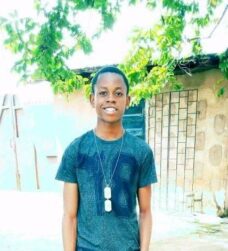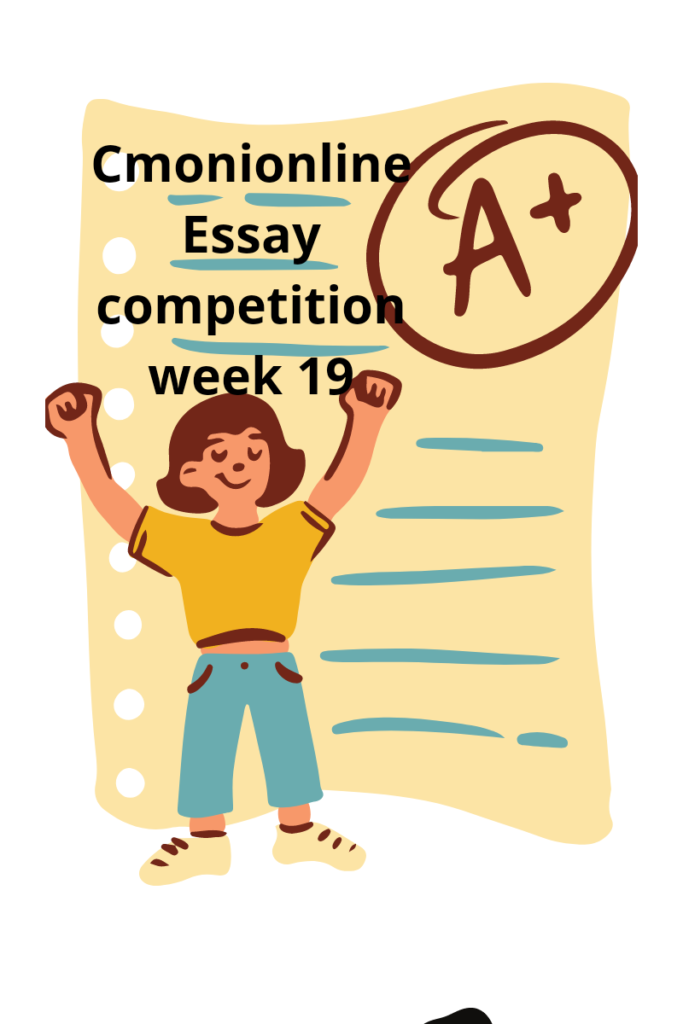“I love you” did not seem, to me, an average-Nigerian-parent kind of statement to make, and that was why I was staring askance at Olisa during his rather lengthy conversation with his mother. In a slightly injured voice, Olisa was telling his mother that his aggregate score in the Unified Tertiary Matriculation Examinations he sat was a meagre 163, and his mother was telling him all the reasons why that was not his actual score. She told him that she knew how much he had prepared for the exams, how corrupt the education system of Nigeria had turned, how he, Olisa, was much brainier than the score “they” had decided to give him, how he did not have to let a poor result depress him, how he should begin to look forward to travelling abroad to further his education, how much he was, in every true sense, the complete son she had prayed for, and how much she loved him.
Olisa and I had become friends the very first day I walked into the lesson centre, and took a seat beside him. He gave me the most welcoming of smiles and afterwards we came to know that we were both fans of Manchester United, preferred Chemistry to Physics, enjoyed reading and writing poetry, would go to bed hungry if garri was the only thing on the menu for the night, and that we were both sitting UTME for the second time. We got along pretty much after these discoveries of shared failures, interests, likes and dislikes even though there was one very huge difference – we were not both from average homes. In Olisa’s opinion, his parents were not entirely wealthy, but comfortable. So, he liked to say he was rather only less average than I was.
Olisa would not accept the description of his family as upper class even though his clothes stank of his parent’s wealth. His breath stank of meals that I was not even worthy to eat in my dreams. His ears bled out milk and honey from the affectionate words that his parents whispered to him on the breaking of every dawn; words like ‘I love you’, ‘you mean the world to me’, ‘I wouldn’t trade you for anything in the world.’; words I hadn’t heard before.
When Olisa got off the phone with his mother, he had on his face the handsomest smile I had ever seen, the sort that he flashed at me the day I walked into the lesson centre the first time, the sort that made me want to be friends with him, but I did not smile back at him. I was far too bothered about how I was going to break the news of my own UTME score to my parents. I was wishing I would come across a rusty, old kettle in which had been trapped an ancient genie. I wanted to be granted just one wish. I wanted to change the 216 that was in black on the paper I had collected from the petite girl at the cyber café.
I had 51 marks in English, 54 in Chemistry, 54 in Biology, and to my rudest shock, 57 in Physics, the subject I liked least. I would tell the genie to increase the English score by 40, the Chemistry score by 30, the Biology score by 40, and the Physics score by 20. Nothing would make me prouder than to find that genies were real. In a subdued voice, I told Olisa that I was going home and he waited by the bus stop with me until a taxi pulled over, and I climbed in. He asked me to think less of the score, reassuring me that everything would turn out fine, and I just wanted to smack him in the face at that moment for thinking that my life and his were similar.
I got home, adrenaline rushing through me as I caught sight of my mother in the house front. I tried to steel my nerves, but strength failed me. I walked with a defeated gait to the porch of our house. My mother was winnowing husks from a tray full of beans. She returned my greeting, and I made to continue my stride into the house.
“Didn’t you check the results?” She asked, staring up at me. I froze, and after a few moments of frustrated silence, I found the strength to dig into my butt pocket and fetch the result. As I handed her the result, I was wondering how this single sheet of paper could decide if I was going to get an admission into the college of medicine as I longed for. She let out a sigh, and asked me to go and show it to my father. I was shocked to learn that he was in, and with a bruised effort, I took the paper and went in. My father was in the sitting room, sifting through the pages of a newspaper he had read before. I greeted him, and handed him the paper.
“What did you get last year?” He asked after several minutes of studying the result in silence.
“187, sir.” I returned.
He sat up. “Take out last year’s score from what you got this year, what do you have?”
“29, sir.”
In a monotonous huff, he began to say, “You see what I tell you every day! You read for two hours, and you think you have read something. That is not how doctors read! In fact, a farmer would do better. You said you want to be a doctor, yet you bring home this kind of result. You must be joking! Next year, you write another one because I am not ready to bribe anyone. A year after that, if you don’t make it, you will write again. Keep on staying there while your mates are now about to graduate.” He stood and disappeared into his room.
I sat on the couch, and my mom walked in with the tray of beans, balanced on her palm. She asked if I was going to eat, and I said nothing. She asked me to go and freshen up. I was reluctant, and she yelled at the top of her voice. At once, my legs obeyed. I went into my room, and locked the door. I took out my pen, and began to write a poem. I wrote about how love was what we all truly pined for, but never got. And then, I wrote about how depression sounded so convincing that many a man did as he wanted them to do. Night fell, and I thought I could use poetry to fight insomnia.
By morning, I got a text from Jane, another friend from the coaching centre. She wrote, “Morning Onyi, how was your night? I got 269 in Jamb ooo. This score is not enough for medicine and I am so confused. What did you get? I know you have smashed. Please, can we meet at the lesson centre by 2PM today?” I read the text a number of times more, and put the phone away. I decided, I would not meet with her, but when she called, and threatened to show up at my house if I didn’t come, I soon changed my resolve.
2PM came swiftly, and I left the house. I got to the lesson centre on foot, and I was 33 minutes late. Jane had on an azure summer gown. She was beautiful and simple all at once. She gave me an unexpected hug and held on to me till we got into one of the classes. She asked why I was being unusually quiet and I gave nothing back. She began to insist that I tell her what I got in the exam or else we would stop being friends. I looked at her and let all the individual scores of each of the four subjects fall out of my lips. She turned quiet, and then, her hands connected with mine.
“What are you going to do?” She asked.
“Nothing, I suppose,” I gave back, indifferently.
“I love you,” she said. I stared at her and I found the honesty dancing in her eyes. She loved me and she truly meant it. I discovered I admired her too, and then I concluded it was love for me too, and then I surmised it was quite more than love, and then, I was not so sure what it was I felt anymore. I had never heard anyone say those words to me before. I was not sure about what travelled through my mind. I was not sure about anything.
“I said, I love you,” she reiterated, jolting me out of my thoughts.
“Th-thank you,” I stammered, nervoursly.
“Just thank you?” She asked, fixing demanding eyes on me. I groped for words in my throat, but there was nothing. And then, I felt her hands slip out of mine.
Johnson Onyedikachi is a teenage Nigerian creative writer who has unpublished manuscripts of poetry and plays. He recently picked interest in crime fiction and in August 2019, enrolled in an online course where he gained proficiency in article/journal writing including the use of referencing formats (MLA and APA style). He wrote in via johnsonshaqs@gmail.com







